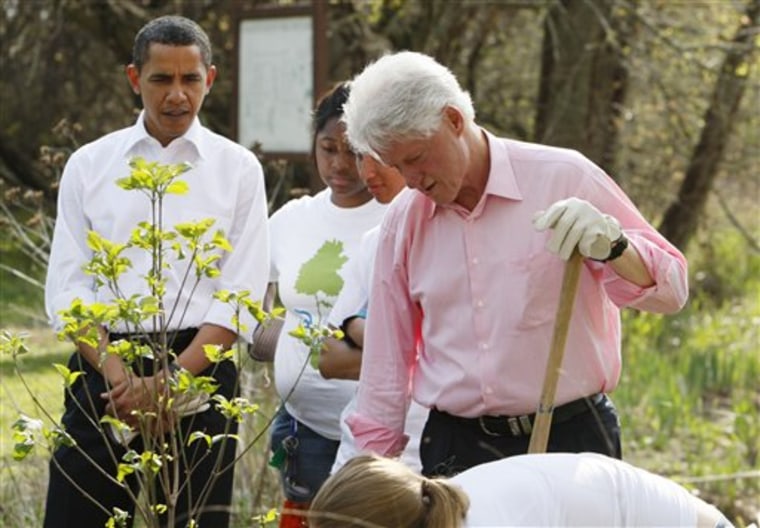A community policing program that President Bill Clinton created and President George W. Bush tried to curtail is making a strong comeback under the new Democratic administration.
The economic stimulus package enacted in February provided $1 billion to expand the Community Oriented Policing Services grant program, known as COPS. On Wednesday, the House is likely to pass a bill approving additional money for 50,000 new beat cops nationwide over the next five years.
For police departments grappling with hiring freezes and layoffs because of the weak economy, the COPS revival comes just in time.
"The program is incredibly important," said Andrea Mournighan, director of governmental affairs for the National Association of Police Organizations. Crime goes up when the economy goes bad, she said, and "not enough officers on the street means there is no one there to deter crime."
Competition for the $1 billion in stimulus money — enough to retain or create about 5,500 jobs — has been intense. The Justice Department's COPS office already has received grant requests from local police departments totaling $8.4 billion, said spokesman Corey Ray.
The original Clinton plan, enacted as part of a crime bill in 1994, envisioned hiring 100,000 police officers who would walk the streets, visit the schools and get to know the communities they were policing. The federal government paid 75 percent of the cost for three years, with a salary and benefit cap of $75,000 per officer.
The program quickly ran into political trouble when Republicans took control of the House in 1995 and objected to the greater federal role in local law enforcement. In late 1995 the COPS program was one of the major areas of dispute during the standoff between Clinton and Republicans that led to a partial government shutdown.
The Bush administration, saying the 100,000 hiring goal had been reached and questioning the effectiveness of the program, tried every year to reduce the COPS budget. In recent years Congress has provided funds for equipment and technology grants, but has approved almost no money for new hiring.
President Barack Obama reversed that trend, inserting money for community policing in his budget. Equally important, Vice President Joe Biden was a leading advocate of the program when he was in the Senate.
Milwaukee police chief Edward Flynn said that while the politics has centered mostly on the hiring program, "the great value of the COPS program was on the educational side."
The money for new officers was the hook, he said, but the notion of close engagement with neighbors "was a critical development in the evolution of policing in American cities," helping drive down crime while boosting community trust.
Supporters cite the overall drop in crime rates in the 1990s, when departments were hiring new officers under the program, although other factors certainly contributed to less crime. The Government Accountability Office, the investigative wing of Congress, estimated in a 2005 report that COPS constituted about 1 percent of total local spending on police services from 1994 through 2001 and contributed to a 2.5 percent decline in violent crime in roughly the same period.
Since its inception, the program has spent $12.4 billion and made grants to hire 117,000 police officers.
"It's been singularly successful in doing exactly what it was designed to do — get cops off the sidelines," said Rep. Anthony Weiner, D-N.Y., sponsor of the House bill to expand COPS. He noted that while New York City has been able to add thousands to its force under COPS, much of the money has gone to small towns and sheriff programs where the addition of a single cop can be significant.
Weiner's bill would approve $1.8 billion a year for five years: $1.25 billion for personnel, $350 million for technology grants and $200 million for community prosecutors in areas of high crime. The federal government would still pay 75 percent of the costs over three years, but the salary and benefit cap is eliminated.
The COPS money in the stimulus bill pays 100 percent of the cost for hiring new officers or bringing back laid-off officers.
Sens. Herb Kohl, D-Wis., and Dianne Feinstein, D-Calif., have introduced a companion bill in the Senate.
